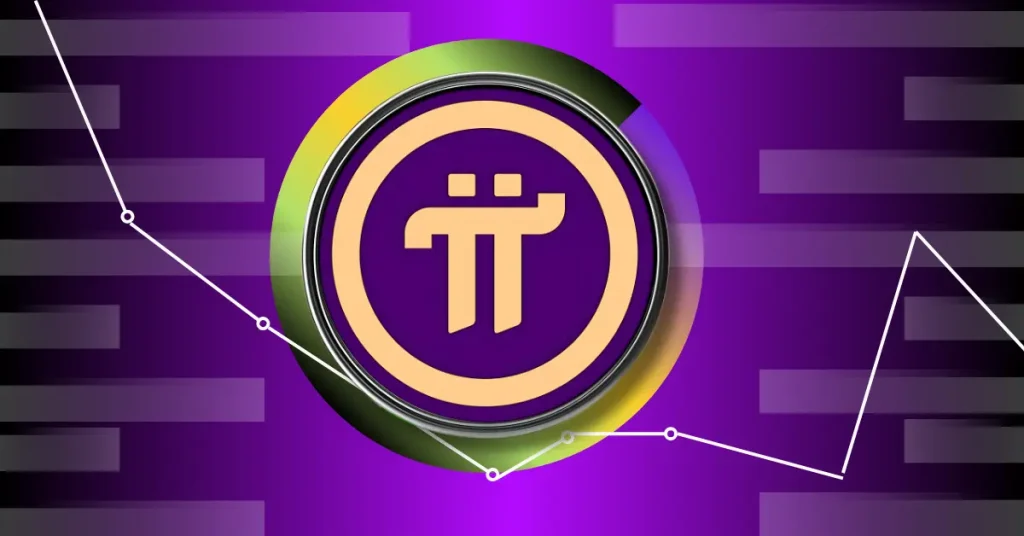
The crypto asset (virtual currency) tax system has made great progress. In the FY2020 Tax Reform Outline announced on December 14th, the Liberal Democratic Party states that corporate-owned crypto assets held by third parties other than the issuer will be subject to period-end market value valuation if certain conditions are met. It was clearly stated that a review will be conducted to make it exempt from taxation. On the 22nd, the government approved this at a cabinet meeting.
Regarding corporate taxation of crypto assets, due to the review of end-of-year mark-to-market valuation taxation carried out in 2023, corporations that hold crypto assets issued by themselves are no longer subject to end-of-period mark-to-market valuation taxation. On the other hand, if you own crypto assets issued by other companies, you are still subject to taxation, which has been a hindrance for Web3 businesses to do business in Japan.
In response to this, the Japan Crypto Asset Business Association (JCBA) submitted a “Request for Tax Reform in 2024” to the government in July of this year. The main points of the request were (1) separate taxation, (2) corporate tax, (3) asset tax, and (4) exchange of crypto assets. In this tax system, we achieved results in (2) corporate tax reform, and progress has been made in creating an environment conducive to the expansion of Web3 business in Japan.
What kind of efforts were behind the inclusion of third-party tax reform policies in the “Tax Reform Outline”? In addition, Gaku Saito, Chairman of the JCBA Tax System Review Committee, Keigo Takegahara, Vice Chairman of the Committee, and Yosuke Shiraishi, Chairman of the JCBA Stable Coin Committee, will discuss what developments are expected for Japan’s Web3 business due to the tax reform. We spoke to Mr.
—What do you think are the current problems with the corporate tax system for crypto assets?
Saito:Regarding corporate tax, a request was made to have crypto assets, regardless of whether they were issued by the company, exempted from period-end market valuation taxation unless they are held for short-term trading purposes. Especially when promoting Web3 business, if you need to hold crypto assets for a long time and are subject to end-of-period mark-to-market taxation, you will have to pay taxes on unrealized gains even though you do not have cash. arise. If they were to sell their crypto assets to pay the tax, they would be unable to advance their Web3 business and would be putting the cart before the horse.
—What kind of positive impact do you think this tax reform will have on Web3 business?
Saito:The reason behind the original request was that Japanese Web3 operators were being moved overseas due to current corporate tax restrictions. Under period-end market valuation taxation, if the value of the crypto assets you own increases, you will have to pay tax even if you have not determined your profits. This is extremely difficult for a business owner to do. While running a business, it is necessary to predict the price of the crypto assets held at the end of the fiscal year and raise funds to pay taxes, which is not realistic. This time, that is no longer necessary, and the basic environment for conducting Web3 business in Japan is now in place. In this respect, we hope that we will be able to keep business operators in Japan.
What we need to see from now on is how many businesses will clear the imposed conditions, actually apply, and proceed with Web3 business. It is important that the system is used, and we need to make sure that everyone knows how to use it. If business operators are still forced to go overseas, they may need to consider something new.
–Will corporations that hold crypto assets issued by third parties be able to choose cost valuation in the future?
Saito:The current tax system outline does not allow holders to freely choose cost valuation without any conditions. If certain conditions are met, valuation at cost will be possible.
–What are the certain conditions?
Saito:Basically, crypto assets that are subject to transfer restriction conditions will be targeted first. Furthermore, the outline states that it is necessary to announce to the public that there are restrictions. There is a means of publicizing this through the Japan Cryptocurrency Exchange Association (JVCEA), and the process is to notify cryptoasset exchanges in order to make the announcement public. However, the specific operations and conditions will be finalized in the future.
──What kind of initiatives did the JCBA Tax System Study Group take?
Saito:Requests regarding corporate tax have been submitted to the Financial Services Agency since last year. After that, the logic to meet the demands was worked out mainly through JCBA and in consultation with the Financial Services Agency. In other words, we worked out how to develop a logic that would be acceptable to the Ministry of Finance’s Taxation Bureau and other relevant parties and would not cause any contradictions.
The starting point was the decision in 2018 to uniformly tax crypto assets based on period-end mark-to-market valuation. At that time, the main purpose of holding crypto assets was to use them as a means of payment or to buy and sell them with an eye on short-term gains in price, which is why they were valued at market value. This is a system that has been established, so it takes more than just a request to overturn it. Five years have passed since then, and the purpose of holding crypto assets has diversified, not necessarily as a means of payment or for short-term trading purposes. We spread awareness that crypto assets are becoming more diverse.
Takegahara: In 2018, when accounting rules were clarified, accounting standards were created based on the actual transaction situation, and crypto assets were treated as a means of payment, for example, like foreign currency, and with the expectation of profit from price appreciation. The expression “I’m here” was clearly visible. The Ministry of Finance also based this understanding when considering what to do about taxation. The first important point was to change this logic.
Shiraishi:As an industry group, it is very important to determine what kind of revisions are desirable and whether there are actual needs when changing the tax system. I feel that the JCBA has been responsible for conducting a type of survey of the actual situation in the industry.
Regarding the current tax reform, the ownership of self-issued stocks has already been realized, but regarding the stocks issued by third parties, “If you sell what you are purchasing for investment in a short period of time, you will be taxed at market value. From the original premise that “is appropriate,” it was important to be able to explain to the Ministry of Finance that the items were “purchased for the purpose of long-term holding.”
Fortunately, it is technically possible to create a state in which crypto assets cannot be bought or sold. For example, if you can prove that it is locked up using a smart contract, you can prove that it is not for short-term trading purposes. There are other methods that can be used to prove that a third party is restricting the purchase or sale. In discussions with the Financial Services Agency and the Ministry of Economy, Trade and Industry, the industry group has been coordinating with crypto asset exchanges and business operators to determine whether it is really possible to implement it.
──How much of an achievement do you rate this revision?
Shiraishi: Opinions may be divided. In some respects, I think there could have been room to make the system a little more user-friendly in terms of details. There are some restrictions, so not everyone will be exempt from the period-end mark-to-market valuation tax, but it will be a system that eligible businesses can take full advantage of, and I think it’s a good first step.
Takegahara:The scenery is 180 degrees different from what it looked like four or five years ago. In the past, even if we made a request, it would end up being dismissed as “speculation,” but since last year, the sentiment has changed. Taxes are basically a protocol for income redistribution, and they cannot be easily changed, and the industry’s position talk does not work.
Furthermore, the fact that the tax reform process itself is moving forward is valuable. I think that government agencies have also greatly advanced their understanding of crypto asset technology. In the future, when considering matters other than corporate tax, it will be very important to be able to skip the explanations that were previously given.
──What are the future developments regarding the request that was postponed this time?
Takegahara:This year, we have focused on corporate tax. Regarding separate taxation, some may think that expectations have been met, but as an industry organization we are thinking from a long-term perspective. From next term onwards, I would like to focus more on separate taxation.
Saito: There is a lot of innovation in this industry, so we have to respond to new problems and requests as they arise. As I mentioned earlier, it seems like government agencies are all in the same boat when it comes to tax reform, and what should be done next to ensure that the system is used, and if it is not used? We will talk about what the problem is. The remaining issue is the separate taxation of individuals, but so far there does not seem to be any sense that the issue will necessarily move forward in a tone that says, “Now that the corporate tax issue has been resolved, the next step is to tax individuals.” I believe that a broader social momentum is needed here.
Shiraishi:Separate taxation for individuals has high barriers. FX also took time. What was really good about this time was that we had a consensus-building protocol in place. There were industry organizations, government agencies to work with, and people who supported us, and a system was created to encourage people to say, “Let’s do this this year.” Until now, our industry did not have such a clean process, and each time we made requests, we were rejected.
This time, three organizations, including not only the JCBA but also the Japan Blockchain Association (JBA) and the New Economy Federation, jointly created the proposal. I think it is very important that the industry came together to make a request, and that the regulatory agency and the Ministry of Economy, Trade and Industry, which is in charge of promoting the industry, worked together to think about how to make it happen and were able to move forward with the process. With the process in place, we now know what to do next and in what order. I think that individual tax reform will also be seen in the future. I feel it was a huge step forward.
|Written and edited by: Koki Mizuno
|Top image: From JCBA release
The post Turning point for Web3 business: “Japan has created a basic environment” due to tax reform for third-party ownership: JCBA | CoinDesk JAPAN appeared first on Our Bitcoin News.

 1 year ago
94
1 year ago
94














 English (US) ·
English (US) ·